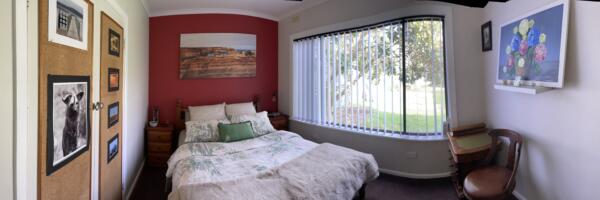Transitioning a person with dementia to respite care, such as Safe Solutions Care Specialist Respite Accommodation in Colac, requires a thoughtful approach to ensure comfort and stability. Here are the best practices for a smooth transition that we at Safe Solutions Care undertake:
Preparation
- Early and Inclusive Conversations: Engage the person with dementia and their family in early discussions about respite care. This ensures their concerns and preferences are addressed and provides ample time to prepare.
- Facility Familiarisation: Arrange visits to the Safe Solutions Care facility. Familiarising the person with the new environment can ease anxiety and help them feel more comfortable during the transition.
- Comprehensive Information Sharing: Provide detailed information to the respite care staff about the person’s medical history, daily routines, likes, and dislikes. This enables personalised care tailored to their specific needs.
Personalisation
- Bringing Familiar Items: Encourage the person to bring familiar items such as photos, favourite blankets, or personal mementoes. These items offer comfort and a sense of home, easing the transition.
- Maintaining Routines: Preserve the person’s daily routines as much as possible within the new setting. Consistent routines help reduce confusion and promote a sense of stability.
Communication
- Clear and Simple Communication: Use clear, straightforward communication. Simple sentences and a calm, reassuring tone can help minimise confusion and anxiety.
- Regular Updates: Stay in regular contact with the respite care staff. Frequent updates ensure any issues or changes in the person’s condition are promptly addressed.
Emotional Support
- Emotional Preparation: Prepare the person emotionally by discussing what to expect in respite care. Highlight the benefits, such as new activities and social interactions, using positive reinforcement.
- Activity Involvement: Encourage the person to participate in social activities offered by the facility. Engagement in these activities can improve mood and reduce feelings of isolation.
Follow-Up
- Close Monitoring: Monitor the person’s adjustment closely after the transition. Frequent visits, especially initially, provide reassurance and support during the adjustment period.
- Feedback Loop: Establish a feedback loop with the facility to continually assess and improve care. Constructive feedback helps address any issues and enhance the quality of care.
Professional Support
- Seeking Professional Guidance: Safe Solutions Care has a team specialising in dementia care, lead by an experienced Registered Nurse. Their expertise can provide valuable insights and recommendations tailored to the individual’s needs.
Conclusion
Transitioning to Safe Solutions Care Specialist Respite Accommodation in Colac involves careful planning, personalisation, clear communication, emotional support, and ongoing involvement. By following these best practices, the transition can be managed smoothly, ensuring the person with dementia receives high-quality care and feels supported throughout the process.

